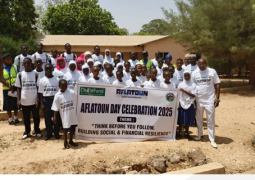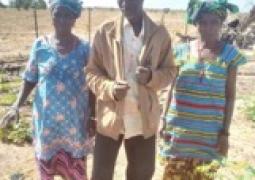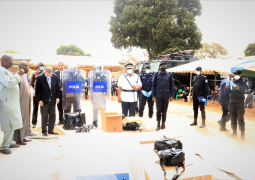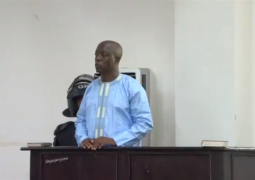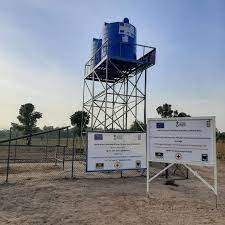
Funded by the European Union and Thani Bin Abdullah Al Thani Humanitarian Fund through the ‘Konkobayo’, the project was designed to alleviate hardship endured by the people in the community through the provision of boreholes.
Water scarcity is a major problem in some provincial villages in The Gambia. Aside, the heavy labour involved in accessing water fit for human consumption to transportation makes it time consuming and a big challenge.
With this project, locals are hopeful that it would significantly improve food and nutrition security of vulnerable communities, households and individuals in the targeted districts of Upper River and Central River Regions.
At the ceremony, Alasana Senghore, Secretary General of The Gambia Red Cross Society (GRCS), urged the community to ensure the sustainability of the project and to use it effectively and efficiently.
Senghore reminded that by coming together and working for a common cause would significantly boost their work, thus making them have comparative advantage to develop the country.
He expressed his willingness to continue lobbying for more funds to do more for the country.
Ablavi Djossou, Country Manager Action Against Hunger (AAH) challenged the community to take ownership of the project.
Momodou E. Jallow, Program Manager Action Against Hunger (AAH), said the project is part of a bigger project they have been implementing for the past 3 years.
Foday Bah, village Alkalo recalled that the communities always encountered acute water shortage in the past, but that the project has come to address that.
Bah then thanked the sponsors and the implementing agency for providing them clean and safe drinking water, which he said, would greatly contribute to the health of the people in the village.
Bukari Sowe, chairman of the Village Development Committee, said the construction of the project has brought about development to the community.
Juma Bah, Women President of the village, said they only had a single well in the community prior to the project.
Kebba Sillah, Executive Director of Wuli and Sandu Development Association (WASDA) said the intervention is not based on any favoritism but on a real felt need.
Sillah expressed his willingness to continue working with beneficiaries to lay down plans for the sustainability of the project.
Ebrima Cole, Managing Director of Swe-Gam Company, said the coming of the borehole would greatly reduce the burden on women and ensure the girl-child has enough time to prepare for school.
Foday Danjo, Chairman Basse Area Council, hailed the sponsors and the implementing partners for providing clean drinking water for his tax payers.
This project seeks to improve food and nutrition security of vulnerable communities, households and individuals in the targeted districts of Upper River and Central River regions. Meanwhile, the main areas of intervention include increasing availability and access to quality food through backyard or kitchen garden, community and school garden, productive water, promotion of high nutrient field crops and livestock food safety nets, improving hygiene, sanitation, access to water. It is also designed to strengthen capacity development of food security and nutrition Community-Based Organisations, regional governance and coordination, capacity building, technical advocacy at different levels (local, regional and national) and support to coordination.


